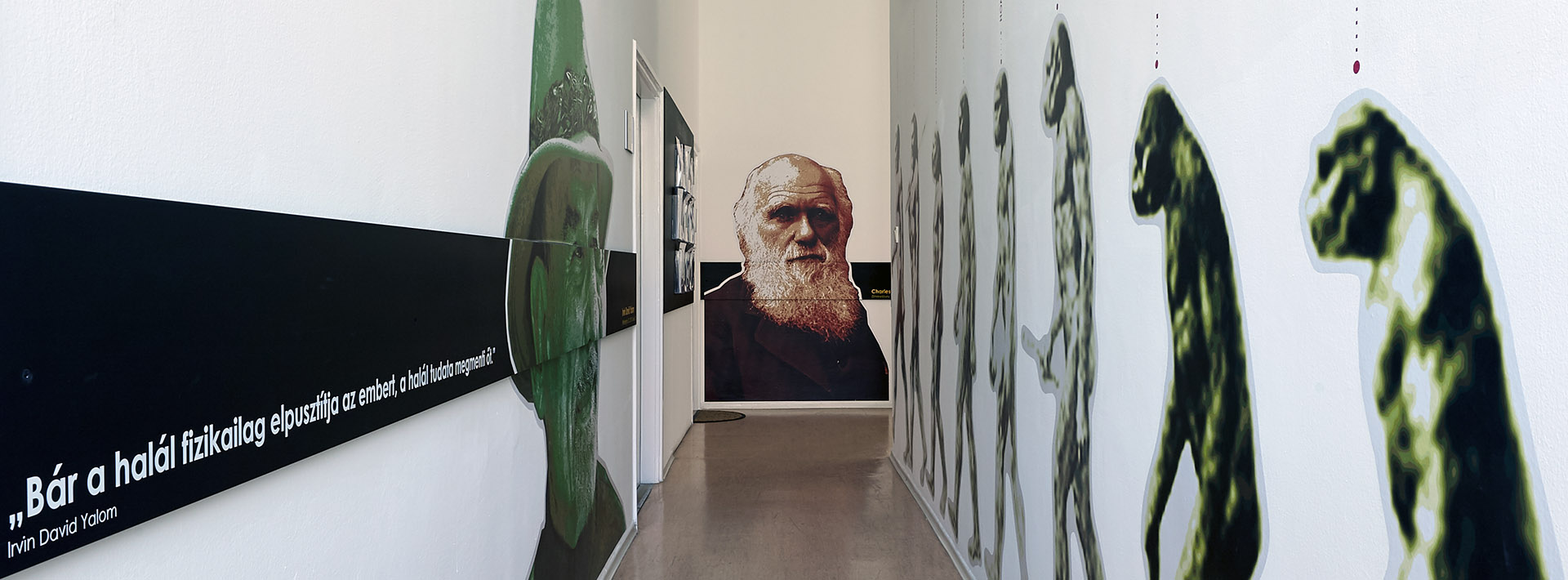Adatok
A Tantárgybejelentőben megadott hivatalos adatok az alábbi tanévre: 2024-2025
Tantárgyfelelős
-
Csathó Árpád István
associate professor,
Óraszámok/félév
előadás: 0 óra
gyakorlat: 0 óra
szeminárium: 24 óra
összesen: 24 óra
Tárgyadatok
- Kód: OAF-NOA-T
- 2 kredit
- General Medicine
- Optional modul
- spring
Nincs
Kurzus létszámkorlát
min. 5 fő – max. 20 fő
Tematika
Culture, mind, and brain: The three main substrates of our self. The basic mechanisms of these substrates as well as the potential interactions between them have been widely investigated by several scientific fields. For example, various research areas of neuroscience and psychology are dedicated to mind and brain connections. In addition, the dynamics and rules of the complex human cultures have been rigorously studied by cultural anthropologists. The potential cultural effects on neuronal functioning, however, received less attention. Therefore, a novel scientific synthesis - Neuroanthropology - has emerged recently with an aim to provide a conceptual background of culture-brain interactions. The course is dedicated to this scientific area. More particular, the course aims to show the different aspects of the main question of 'how human culture is embedded in the human brain'.
Előadások
Gyakorlatok
Szemináriumok
- 1. Methods and main theoretical approaches of neuroanthropology - Csathó Árpád István
- 2. Methods and main theoretical approaches of neuroanthropology - Csathó Árpád István
- 3. Culture-sensitive neural substrates, brain evolution - Csathó Árpád István
- 4. Culture-sensitive neural substrates, brain evolution - Csathó Árpád István
- 5. Neuroanthropology of social behaviour - Csathó Árpád István
- 6. Neuroanthropology of social behaviour - Csathó Árpád István
- 7. The neuroanthropology of human empathy - Csathó Árpád István
- 8. The neuroanthropology of human empathy - Csathó Árpád István
- 9. Socio-cultural background of pain - Csathó Árpád István
- 10. Socio-cultural background of pain - Csathó Árpád István
- 11. Culture bound syndromes: Relationship between culture and mental diseases - Csathó Árpád István
- 12. Culture bound syndromes: Relationship between culture and mental diseases - Csathó Árpád István
- 13. Neuroanthropology of addiction - Csathó Árpád István
- 14. Neuroanthropology of addiction - Csathó Árpád István
- 15. The bio-psycho-social context of "everyday" drugs - Csathó Árpád István
- 16. The bio-psycho-social context of "everyday" drugs - Csathó Árpád István
- 17. Human locomotion: Ecology, Culture, and Disorders - Csathó Árpád István
- 18. Human locomotion: Ecology, Culture, and Disorders - Csathó Árpád István
- 19. Fatigue and Activity: Biopsychological and social correlates - Csathó Árpád István
- 20. Fatigue and Activity: Biopsychological and social correlates - Csathó Árpád István
- 21. Human diet and its neuro-cultural background - Csathó Árpád István
- 22. Human diet and its neuro-cultural background - Csathó Árpád István
- 23. The social stress: Effects of cultural and neural processes - Csathó Árpád István
- 24. The social stress: Effects of cultural and neural processes - Csathó Árpád István
A tananyag elsajátításához szükséges segédanyagok
Kötelező irodalom
-
Saját oktatási anyag
Available on Neptun.
Jegyzet
-
Ajánlott irodalom
D. H. Lende and G. Downey (eds.): The encultured brain: An introduction on Neuroanthropology, MIT Press, Cambridge, MA, USA 2015
A félév elfogadásának feltételei
-
Félévközi ellenőrzések
Students are required to write an essay about a Neuroanthropology topic chosen from the topics announced during the semester.
Távolmaradás pótlásának lehetőségei
According to the Code of Studies and Examinations.
Vizsgakérdések
-
Vizsgáztatók
Gyakorlatok, szemináriumok oktatói
- Csathó Árpád István
